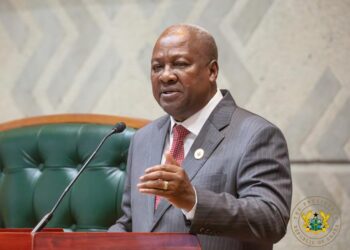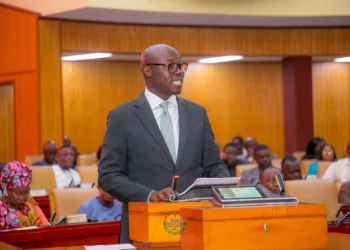Global credit rating agency Fitch Ratings has upgraded Ghana’s Long-Term Foreign-Currency Issuer Default Rating (IDR) from ‘Restricted Default’ (RD) to ‘B-’ with a Stable Outlook.
The upgrade marks a significant milestone in Ghana’s economic turnaround and reflects renewed international confidence in the country’s macroeconomic stability and debt management reforms.
The new rating follows the successful restructuring of \$13.1 billion in Eurobond debt and Ghana’s normalization of relations with the majority of its commercial creditors.
According to Fitch, only \$2.6 billion of external debt remains to be resolved, with minimal risk of holdouts. Additionally, Ghana ratified a \$5.1 billion memorandum of understanding with bilateral official creditors in January 2025.
Fitch highlighted several indicators of progress, including the sharp drop in inflation—from 23% in 2024 to 18.4% in May 2025—and the strengthening of the cedi, which has helped ease import costs and improve exchange rate stability.
Inflation is projected to average 15% in 2025 and decline to 10% in 2026.
Under Finance Minister Dr. Cassiel Ato Forson’s leadership, Ghana’s public debt-to-GDP ratio is expected to decline to 60% in 2025, down from a peak of 93% in 2022.
The fiscal outlook has also improved, with Fitch projecting a 0.5% primary surplus in 2025. Gross international reserves now stand at \$6.8 billion, while interest payments have fallen to 25% of revenue, compared to 48% in 2021.
Despite earlier fiscal slippages during the 2024 election year, Fitch expects a more disciplined approach from the current administration.
Real GDP growth remains strong at 5.7% in 2024, with projections of 4% in 2025 and 4.5% in 2026, supported by a recovery in agriculture and continued growth in the industrial and services sectors.
The upgrade also acknowledges Ghana’s stable governance environment, despite ongoing challenges with corruption and institutional capacity.
Fitch warns, however, that setbacks in fiscal reform or renewed liquidity pressures could trigger a downgrade, while continued consolidation and reserve growth could support a further upgrade.





































